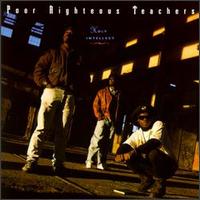| Holy Intellect | ||||
|---|---|---|---|---|
 | ||||
| Studio album by | ||||
| Released | May 29, 1990 | |||
| Recorded | 1989−1990 | |||
| Genre | Hip hop | |||
| Label | ||||
| Producer | ||||
| Poor Righteous Teachers chronology | ||||
| ||||
Holy Intellect is the debut album by hip-hop group Poor Righteous Teachers, famous for its pro-Five-Percenter messages. [1] [2] It includes "Rock Dis Funky Joint", which sampled "Slippin' into Darkness" by War, a 1970s funk band.
Contents
- Critical reception
- Track listing
- Charts
- Weekly charts
- Year-end charts
- Singles
- References
- External links
The album is broken down track-by-track by Poor Righteous Teachers in Brian Coleman's book Check the Technique . [3]